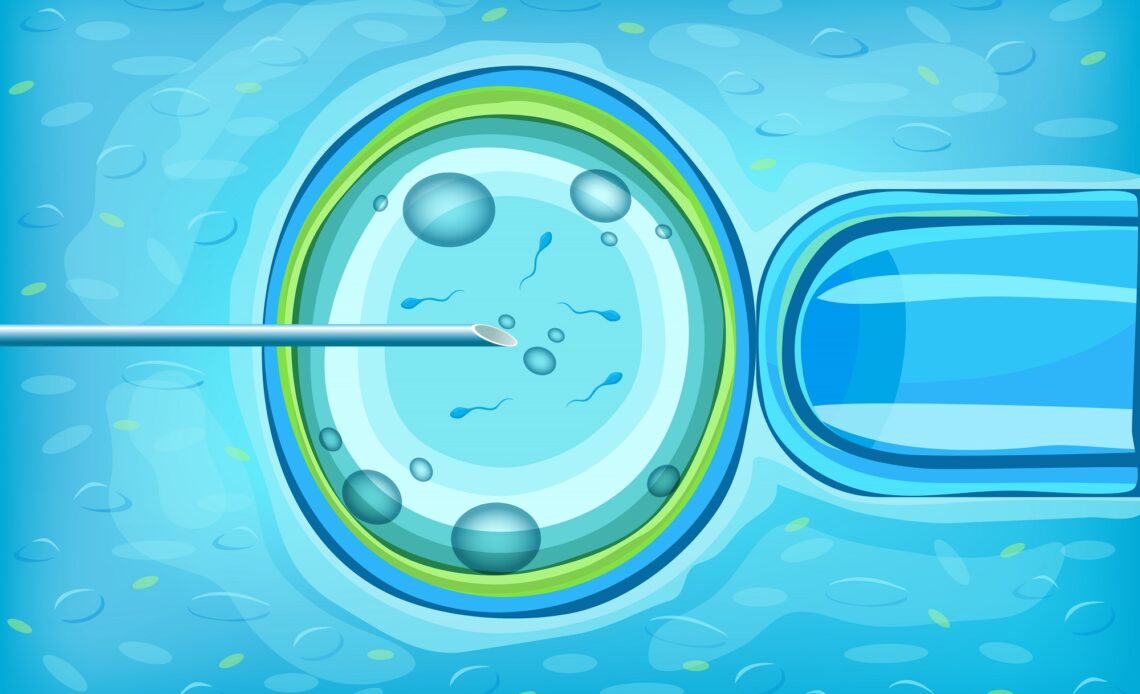Are you considering undergoing in-vitro fertilization (IVF) and wondering about the role age plays in its success? Look no further! In this article, we will explore the relationship between age and IVF success rates, providing you with the information you need to make informed decisions.
Age is a crucial factor that can significantly impact the outcomes of IVF treatments. As women age, their fertility declines, making it more challenging to conceive. Research shows that younger women have higher success rates with IVF compared to older women. This is attributed to the quality and quantity of eggs produced.
Additionally, age can affect the quality of embryos created during IVF. Older women may have a higher likelihood of producing embryos with chromosomal abnormalities, leading to lower success rates. It’s important to understand these dynamics to manage your expectations and optimize your chances of success.
Understanding the impact of age on fertility

Age plays a vital role in determining fertility levels in both men and women. For women, fertility begins to decline in their early 30s, with a more significant decrease after the age of 35. This decline is due to a decrease in the number and quality of eggs available for fertilization. As a result, the chances of conceiving naturally or through assisted reproductive technologies like IVF decrease with age.
Similarly, men also experience a decline in fertility as they age, although the impact is generally less pronounced than in women. Male fertility can be affected by factors such as decreased sperm quality and quantity, which can impact the success of fertility treatments. Understanding these age-related changes in fertility is essential when considering options like IVF.
Age-related fertility decline in women can be attributed to various factors, including a decrease in the number of ovarian follicles, which are responsible for producing eggs. As women age, the quality of the remaining eggs may also decline, leading to a higher risk of chromosomal abnormalities and pregnancy complications. These age-related changes in fertility highlight the importance of timely interventions such as IVF for women facing difficulties conceiving naturally.
The role of age in IVF success rates
When it comes to IVF success rates, age is a significant determining factor. Younger women, typically under the age of 35, have higher success rates with IVF compared to older women. This is primarily because younger women tend to produce more high-quality eggs, which are crucial for successful fertilization and embryo development. As a result, younger women have better chances of achieving a successful pregnancy through IVF.

Conversely, older women, especially those over the age of 40, may face lower success rates with IVF due to age-related factors. The quality of eggs declines with age, increasing the likelihood of chromosomal abnormalities in embryos. This can result in implantation failures, miscarriages, or the birth of a child with genetic disorders. Understanding these age-related challenges is essential for individuals considering IVF treatments.
Factors affecting IVF success rates in older women are multifaceted and require careful consideration. Older women may have underlying health conditions that can impact fertility outcomes, such as hormonal imbalances or decreased ovarian reserve. These factors can affect the response to fertility medications, the quality of eggs retrieved, and the overall success of IVF treatments. Addressing these issues through personalized treatment plans is crucial for optimizing outcomes in older women undergoing IVF.
Strategies to improve IVF success rates in older women
While older women may face lower IVF success rates compared to their younger counterparts, there are strategies that can help improve outcomes. One approach is to consider using donor eggs from younger, healthier women to increase the chances of successful fertilization and embryo development. Donor eggs have been shown to significantly improve IVF success rates in older women and are a viable option for those struggling with age-related fertility issues.

In addition to using donor eggs, optimizing preconception health through lifestyle modifications and nutritional supplements can also enhance IVF success rates in older women. Maintaining a healthy weight, avoiding smoking and excessive alcohol consumption, and managing stress levels can positively impact fertility outcomes. Consulting with a fertility specialist to create a tailored pre-IVF plan can further improve the chances of a successful pregnancy in older women.
The importance of preconception planning and testing cannot be overstated when it comes to IVF and age-related fertility challenges. Before embarking on IVF treatments, individuals, especially older women, should undergo thorough preconception testing to assess their reproductive health. This may include evaluating ovarian function, hormone levels, and genetic factors that could impact fertility. By identifying potential issues early on, fertility specialists can develop targeted treatment strategies to maximize the chances of a successful IVF outcome.
The emotional aspects of IVF and age-related challenges
Navigating the emotional aspects of IVF treatments, especially in the context of age-related challenges, can be a complex journey. Older women undergoing IVF may experience heightened stress, anxiety, and feelings of uncertainty due to the additional obstacles they face. Dealing with the pressure of age-related fertility decline and the desire to conceive can take a toll on emotional well-being.
It’s essential for individuals undergoing IVF, regardless of age, to seek emotional support and counseling throughout the process. Connecting with support groups, therapists, or fertility counselors can provide a valuable outlet for expressing emotions, sharing experiences, and gaining perspective on the challenges faced. Addressing the emotional aspects of IVF can help individuals cope better with age-related fertility issues and enhance their overall well-being during treatment.
Conclusion
In conclusion, the role of age in IVF success is a critical consideration for individuals pursuing fertility treatments. Understanding how age impacts fertility, IVF success rates, and treatment strategies is key to making informed decisions and optimizing outcomes. By recognizing the challenges associated with age-related fertility decline and implementing personalized approaches, individuals can enhance their chances of achieving a successful pregnancy through IVF.
Empower yourself with knowledge about age and IVF success, seek support from fertility specialists and emotional counselors, and take proactive steps to improve your reproductive health. Remember that age is just one factor in the complex landscape of fertility, and with the right guidance and support, you can navigate the journey towards parenthood with confidence and resilience. Stay informed, stay positive, and believe in the possibilities that IVF can offer in your quest to build a family.


